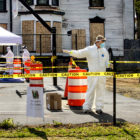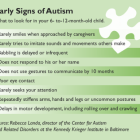I-Team In-Depth
A Surge In COVID-19 Testing Needed Before Connecticut Can Reopen Safely
|
Leslie Radcliffe looks ahead to the planned reopening of Connecticut’s economy beginning on May 20 with a mix of hope and anxiety. Hope, because people in her working-class Hill neighborhood in New Haven will be able to return to work, but anxiety because she’s worried that the “reopening” won’t go smoothly. In particular, she is concerned about testing for coronavirus. Will there be enough testing so the disease won’t catch fire again and threaten the lives and livelihoods in her predominantly black and Latinx neighborhood? Radcliffe, an administrative assistant at Yale University, has been working from home, but last week she began driving her brother to his job at Costco.

